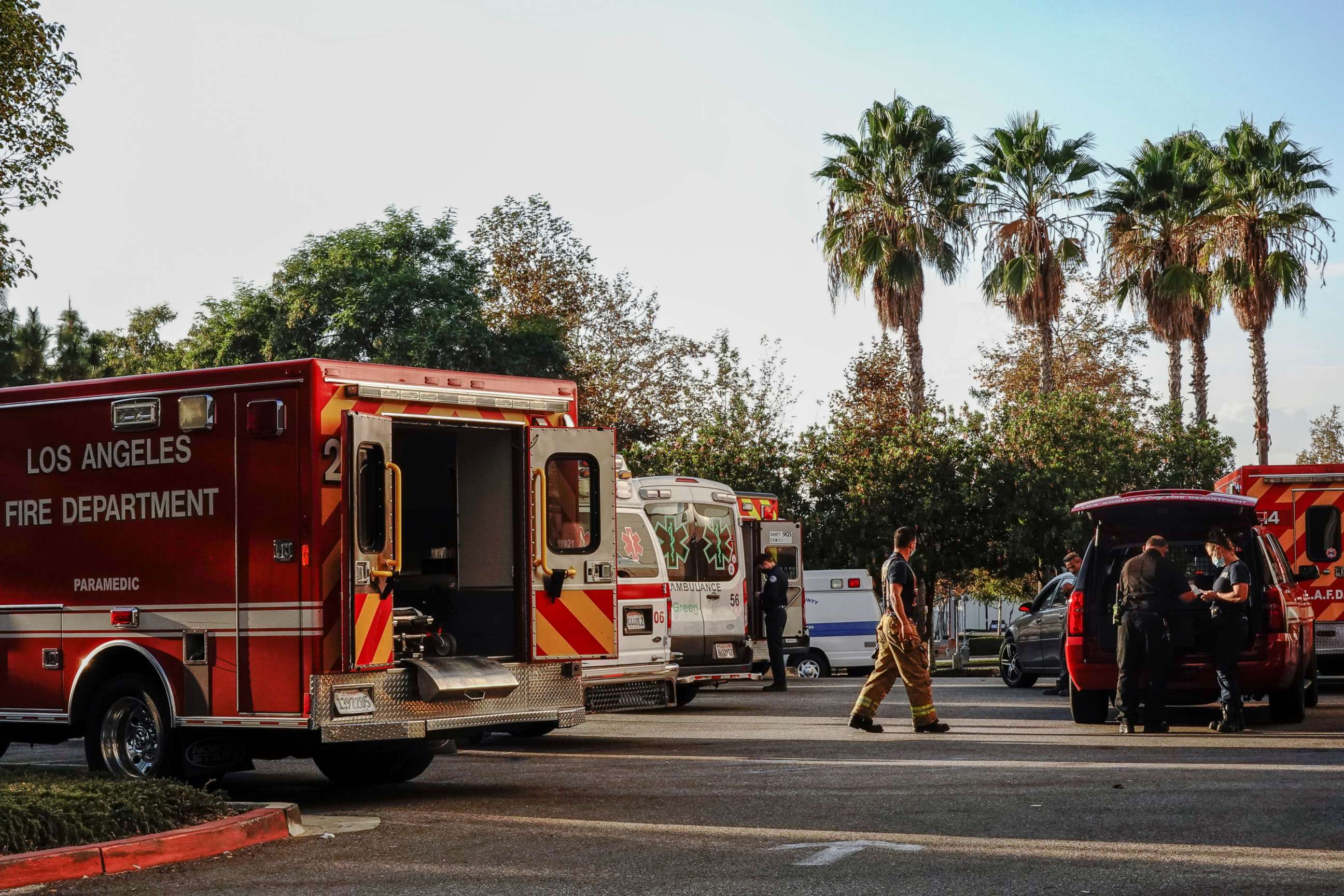LA County Fire Department COVID cases dramatically decrease after 75% get vaccinated
In December their COVID-19 positivity rate was 18%.
Currently available COVID-19 vaccines worked well in clinical trials, and now we're seeing evidence they're protecting people in the real world - even after one dose. The Los Angeles County Fire Department has seen a dramatic decrease in its COVID-19 positivity rate since firefighters started getting vaccinated during the last week of December.
Approximately 75% of the county’s firefighters, over 3000 people, have received their first dose of the vaccine. In December their COVID-19 positivity rate was 18%. It has dropped to 5.6%.
This trend is in stark contrast to what is being seen in L.A. County, now the U.S. hub of the pandemic, and California, which became the first state to surpass 3 million COVID-19 cases.
Like other frontline workers, firefighters put themselves at risk every day.
“As an emergency room physician, and for paramedics and EMS providers and firefighters, we are constantly encountering patients where we do not know the risks, we do not know about their status,” said Dr. Darien Sutton, an LA-based emergency medicine physician and ABC News Contributor.

“I think there was a lot of excitement over the possibility of having an increased level of protection because these people are inside the homes of these highly viral patients and transporting them to the hospitals, so if anyone should be protected, of course they should be," Sutton said.
The dramatic decline in positivity rates was seen just after the first shot. The firefighters that received their first shots in December began getting their second shot starting last week.
Getting immunized is the best way to reduce a person’s individual risk of infection in addition to precautions like wearing a mask, social distancing and hand washing. Experts stress, however, that one shot isn't enough - everyone needs two shots of either the Moderna or Pfizer-BioNTech vaccine for that 95% protection.
Experts said that the positive experience of firefighters, and other stories showing the vaccines are working, might help encourage those who are reluctant or scared to get the vaccine.
“As more and more health care providers started to participate, it kind of had this herd effect where people were like, 'ok, let me.' If you see your friends and coworkers getting it, you’re going to realize the opportunity and benefits of you getting it,” Sutton said.
Getting vaccinated also helps others and is necessary for herd immunity. Herd immunity is when enough people in a population develop immunity to the virus so it reduces the spread in a population even to those who lack immunity. The fewer people get sick, the less likely someone is to pass on the infection.
Experts warn that we may not see a return to our normal routines until herd immunity is reached. That may require 70-90% of the population being vaccinated.
By getting the vaccine, these firefighters are reducing their risk of having the infection and passing it to members of the community they serve daily.
“I think it’s wonderful,” Sutton said. “It’s a great anecdotal piece to show the possibility of great effectiveness. I think this is one of those cool examples where we have some glimmer of hope of what might be expanded upon in a larger population. We might be able to get to that vaccine-induced herd immunity.”
Adjoa Smalls-Mantey, M.D., D.Phil., is trained in immunology and is a psychiatrist in New York City. She is also a contributor to the ABC News Medical Unit.
This report was featured in the Tuesday, Jan. 26, 2020, episode of “Start Here,” ABC News’ daily news podcast.
"Start Here" offers a straightforward look at the day's top stories in 20 minutes. Listen for free every weekday on Apple Podcasts, Google Podcasts, Spotify, the ABC News app or wherever you get your podcasts.




